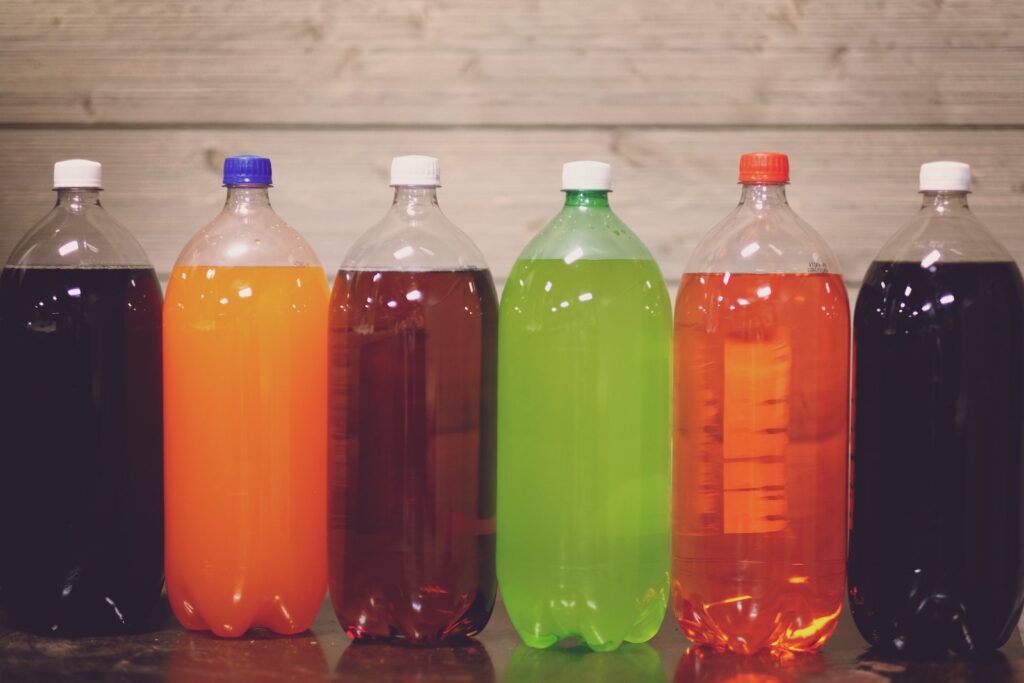
©DoroO via Canva.com
FDA Bans Brominated Vegetable Oil (BVO) Additive From Food
November 3, 2023
The US Food and Drug Administration (FDA) released a statement explaining the repeal of their existing regulation that permits the use of brominated vegetable oil (BVO), an additive, in food across the nation.
This move by the FDA is in the wake of California’s prohibition of the component in October, as a result of the passing of the California Food Safety Act. This law pioneered the first state-level ban on brominated vegetable oil in the United States. Prior, the additive had already been outlawed in Europe and Japan.
Brominated vegetable oil is a substance created by modifying vegetable oil with bromine, a deep red, strongly-smelling oily chemical. It is utilized as an emulsifying agent in citrus-flavored drinks to prevent the flavoring from separating and rising to the surface. Bromine is also frequently employed in the production of flame retardants.
According to the Eat Well Guide, created by the Environmental Working Group – a nonprofit organization devoted to research and advocacy on consumer health, toxic chemicals, and pollutants, has shared a list of 90 products currently that contain the BVO additive.
FDA Bans Brominated Vegetable Oil Requiring Alternatives

USA Today adds that the primary culprits in this roundup are fruity-flavored drinks and sodas which uses brominated vegetable oil as one of its main ingredients. Furthermore, “the FDA determined in 1970 that the ingredient was no longer ‘Generally Recognized as Safe’ and began overseeing its use under its food additive regulations.”
The US Food and Drug Administration (FDA) has noted a marked shift in the practices of numerous beverage producers who have opted to substitute Brominated Vegetable Oil (BVO) with alternative ingredients. This comes in light of the FDA’s recent proposal to overturn the regulations related to BVO usage.
However, despite these progressive industry changes, certain smaller grocery store brands and regional drinks continue to contain this additive. Examples include variants of the Great Value beverage line and Sun Drop.
“According to the Center for Science in the Public Interest, an independent consumer advocacy organization, BVO ‘leaves residues in body fat and the fat in brain, liver, and other organs.’”
Moreover, the organization highlights that BVO can be transmitted from a breastfeeding mother to her infant. This transfer can potentially result in heart lesions, fatty changes in the liver, and compromised growth and behavioral development in the child.
Recent News
Planet Fitness Increases Membership Prices After Nearly 3 Decades
Despite there being a growing amount of cost-conscious consumers, Planet Fitness is raising its base membership fee for new customers for the first time since 1998.
Dorsey Bows Out of Bluesky Due to Fears It’s Turning Into Twitter 2.0
Twitter co-founder Jack Dorsey has exited Bluesky as he said it was “literally repeating all the mistakes [Twitter] made as a company.”
Amazon Debuts New Streaming Ads on Prime
Amazon Ads has unveiled new ad formats for Prime Video users.
Babies“R”Us Is Returning to Some Kohl’s Stores
The openings should begin later in 2024.

